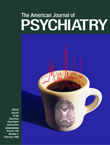Risperidone for Exclusively Negative Symptoms
Mr. A, a 31-year-old Chinese man, was physically healthy and devoid of any seizure or substance abuse history. Nine years ago, his drive began to decrease insidiously. Affective flattening, alogia, and anhedonia also evolved. Major areas of functioning, e.g., interpersonal relations, academic/occupational performance, and self-care, progressively and markedly deteriorated. Seven years ago, he started to receive a sequence of pharmacologic regimens: thioridazine (up to 200 mg/day for 6 months), chlorpromazine (up to 200 mg/day for 6 months), and sulpiride (up to 300 mg/day for 10 months). These strategies did not cause parkinsonian side effects, but all failed to curtail the negative symptoms. Positive psychotic symptoms (referential delusions, persecutory delusions, and thought broadcasting) also emerged 5 years ago. Physical examinations, ECG, chest X-ray, urinalysis, hematology, serum chemistry, and serology all produced negative findings. Haloperidol, 10 mg/day, was prescribed and produced a full remission of the positive symptoms in 4 weeks but induced moderate tremor over the lower extremities. Hence, the dose was tapered to 5 mg/day over another 12 weeks. The motor side effects vanished, while the negative symptoms continued. Thereafter, 5 mg/day of haloperidol plus 20 mg/day of fluoxetine for 16 weeks and then 5 mg/day of haloperidol alone for 45 months still left the negative symptoms unchanged. No positive symptoms ever recurred. Compliance was carefully monitored by a key relative.Six months ago, Mr. A gave written informed consent to receive risperidone monotherapy. After a 3-day drug-free period, the dose was titrated to 1.5 mg b.i.d. over 1 week. After 2 weeks of therapy, his negative symptoms started to recede. He no longer lay in bed all day long, and he gradually regained his drive, appropriate affect, recreational and social interests, and fluidity and productivity of the verbal process. After 6 weeks of therapy, he made new friendships and began seeking a job. Four more weeks later, he obtained an unskilled job following 8 years of unemployment. He has now kept the position for 4 months. All the negative symptoms have become negligible. Neither adverse drug reactions nor positive symptoms appeared after the initiation of risperidone treatment.
References
Information & Authors
Information
Published In
History
Authors
Metrics & Citations
Metrics
Citations
Export Citations
If you have the appropriate software installed, you can download article citation data to the citation manager of your choice. Simply select your manager software from the list below and click Download.
For more information or tips please see 'Downloading to a citation manager' in the Help menu.
View Options
View options
PDF/EPUB
View PDF/EPUBGet Access
Login options
Already a subscriber? Access your subscription through your login credentials or your institution for full access to this article.
Personal login Institutional Login Open Athens loginNot a subscriber?
PsychiatryOnline subscription options offer access to the DSM-5-TR® library, books, journals, CME, and patient resources. This all-in-one virtual library provides psychiatrists and mental health professionals with key resources for diagnosis, treatment, research, and professional development.
Need more help? PsychiatryOnline Customer Service may be reached by emailing [email protected] or by calling 800-368-5777 (in the U.S.) or 703-907-7322 (outside the U.S.).

